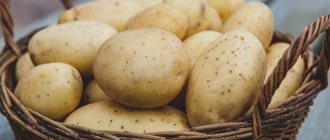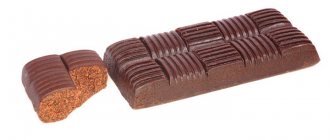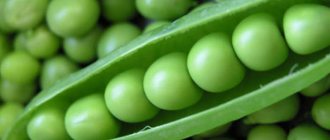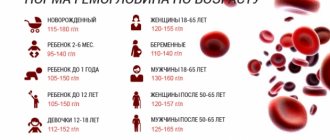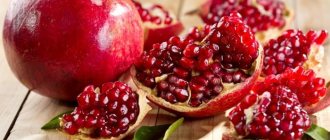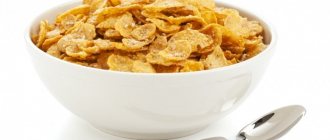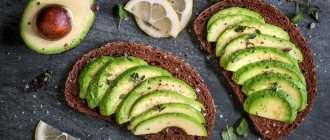An important period for a nursing mother and her baby is the time of breastfeeding. After all, it is through milk that the baby receives all the necessary nutrients for full development. And in order for this product, valuable in many respects, to be produced in sufficient quantities, you need to drink at least 2 liters of liquid per day. And here a natural question may arise: is it possible to consume dried fruit compote while breastfeeding?
But many people love this drink, regardless of gender, age and other criteria. Or maybe he is capable of harming the mother and her child. Let's try to figure this out.
The benefits of dried fruits
Many women have to give up all sweets after giving birth. Dried fruits and compote made from them allow, in a sense, to make up for such losses. In addition, in relation to a nursing mother, two main advantages of this wonderful drink can be distinguished:
- Firstly, it brings noticeable benefits when the lactation period is unsatisfactory. Experts recommend that nursing mothers drink a glass of lukewarm compote about 30 minutes before the baby's meal. This will activate milk production.
- Secondly, dried fruit compote during breastfeeding helps those women who often suffer from constipation during the postpartum period. However, newborns also experience this problem during the first months of life. Compote acts as a good medicine because it has a more gentle effect than medications, the active substances of which can pass into breast milk, which is extremely undesirable.
In addition, it is worth noting that dried fruits are a whole storehouse of useful substances, which are no less than in fresh ones. Of course, subject to proper drying.
Is there any benefit from dried fruit compote?
Children receive all the nutrients and vitamins from their mother’s milk, and for this a woman needs to monitor her diet, trying to eat as healthy and healthy as possible. A tasty drink made from dried fruits will be useful for those who have a lack of milk, the only food for infants. Therefore, a nursing mother can and should not only drink dried fruit compote.
Dry fruits retain all useful microelements - iron, phosphorus, potassium and others. Dried fruits stimulate the production of important hormones such as melatonin and serotonin, which have a positive effect on the nervous system and also prevent postpartum depression.
If you doubt whether a nursing mother can have dried fruit compote, then the answer is yes, it is possible.
Dried fruit compote - benefit or harm
With regular consumption of foods rich in beneficial microelements, human cells receive all the necessary building material. The immune system is strengthened, the functionality of all body systems improves, which has a positive effect on the general condition of a person.
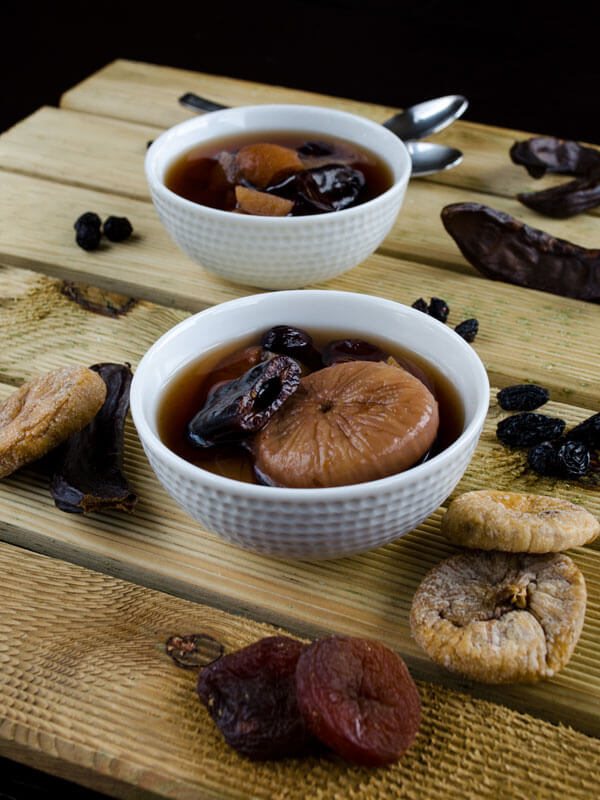
During lactation, an important role is played by iron, magnesium, potassium, and phosphorus. It is possible to maintain the required level in the female body by consuming dried fruits. In addition, this product contains various acids in large quantities: folic, citric, benzoic.
Important! Toxins that accumulate in the intestines gradually penetrate into breast milk. This leads to poisoning of the body not only of the nursing mother, but also of the child himself.
In other words, the question of whether dried fruit compote is beneficial or harmful is resolved by itself. And in many ways it’s more of a medicine. To prevent constipation, you should consume dried fruits in their pure form. For example, pre-soaked prunes. Other fruits and berries also have benefits.
What are the benefits of dried fruits?
Essential vitamins. It is known that dried fruits retain almost the same amount of vitamins as fresh ones, of course, provided that they were dried under natural conditions. Therefore, it is best for a nursing mother to stock up on dried fruits in advance; in the summer, dry apples, plums, and apricots on her balcony. Fruits from your own garden or purchased from local gardeners are suitable.
Lactation. If a nursing mother drinks dried fruit compote every day, lactation can significantly improve; this drink promotes a significant flow of milk. Also, breast milk is enriched with all the necessary minerals and vitamins.
Presence of minerals. Minerals strengthen human cells; with regular consumption of foods containing large amounts of minerals, performance increases, the immune system is strengthened, and the mood and general condition of the whole body improves.
Iron, magnesium, potassium, phosphorus are minerals that a nursing mother needs during lactation. Their level in the body can be increased precisely by eating dried fruits.
Organic acids. Dried fruits contain a significant amount of useful acids, such as folic, citric, and benzoic.
Read also:
Can a mother drink sage while breastfeeding?
Help with the functioning of the gastrointestinal tract. It has long been known that many dried fruits can help empty the intestines without resorting to medications. Often women suffer from constipation after childbirth.
And the toxins that accumulate in the intestines gradually begin to penetrate into breast milk, which poisons the body not only of the mother, but also of the baby.
To prevent constipation, you can eat dried fruits, for example, pre-soaked prunes.
Dried apricots
This product is known for its laxative properties. With regular use, kidney function noticeably improves. In addition, dried apricots help a nursing mother remove swelling.

Often, breastfeeding women are plagued by one unpleasant illness - persistent high blood pressure or hypertension. And since taking many medications during lactation is highly discouraged, or even prohibited, eating dried apricots would be a better alternative.
Prunes
Dried fruit compote based on prunes during breastfeeding is no less useful. This is another fruit that is also known to have laxative effects on the human body. With its regular use, the mother and her baby normalize their stool.
At the same time, many pediatricians share a common opinion regarding prunes - they should be included in the diet 3 months after the birth of the child, but not earlier. This will avoid intestinal upset in the newborn.
Dried fruit compote during breastfeeding – Mom’s news
Fruit and vegetable drinks must be present in the mother's diet during lactation, as they make mother's milk rich in valuable substances.
You can reduce the risk of eating disorders by preparing compote from dried fruits while breastfeeding, because it has the same value as that cooked from fresh fruits. Is it possible for a nursing mother to have such a drink, how to prepare it and when is the best time to include it in the diet so as not to harm either the newborn or the mother?
Dried fruit compote for breastfeeding
For most people, dried fruit compote has the taste of childhood. This drink is prepared in many families, as well as kindergartens, schools, and higher educational institutions. It can also be found in public canteens.
Dried fruit compote contains a lot of valuable substances. It improves digestion and helps normalize the stool of a woman and her child. Can a nursing mother have dried fruit compote? Doctors have a clear positive answer on this matter.
It is recommended to refrain from drinking compote for 1 month after the birth of the child to reduce the likelihood of negative reactions.
In order to introduce dried fruit compote during breastfeeding into the diet as safely as possible, you need to add only one new fruit to the drink. So, it’s healthier to start with prune compote.
If the baby is not allergic, after some time (3 - 7 days) you can add raisins, then dried apricots, etc.
Dates are considered the most allergenic type of dried fruit, so it is recommended to postpone their addition until the child reaches the age of 3 months.
At first, it is safer to drink only the liquid from the compote and throw away the fruits themselves. If the baby's reaction is positive, after a while you can try dried fruits.
In order not to harm the baby’s health, when consuming dried fruit compote while breastfeeding, experts advise observing restrictions. So, a single serving of such a drink should be no more than 250 ml, and the weekly norm should not exceed 650 ml. In addition, it is not advisable to drink it daily.
Dried fruit compote for nursing mothers is also known for its effect on breast milk. It improves its quality and enhances lactation.
To increase the amount of breast milk, it is recommended to consume the compote warm before each breastfeeding, 15 to 25 minutes.
Who is this compote contraindicated for?
Restrictions on the use of dried fruit compote during breastfeeding are individual in nature. For example, if a mother or her child suffers from diarrhea, it is not recommended to cook compote using prunes due to its laxative properties.
Drinks with raisins and dried apricots can aggravate colic, so when it worsens, such compotes do not need to be prepared.
What dried fruits are best to use to prepare compote for a nursing mother?
The most common and safest ingredients for such a compote are:
- Dried apricots. Useful for improving the functioning of the digestive system. It is also believed that regular consumption of this dried fruit helps normalize blood pressure.
- Raisin . It is an excellent assistant for the functions of the cardiovascular system.
- Prunes. Known for its cleansing effect on the intestines. Prunes help a young mother cope with constipation, which often occurs in pregnant and lactating women. In addition, it activates kidney function.
- Dates. Have a beneficial effect on the musculoskeletal system. The calming effect of this fruit is also noted.
- Rose hip. Improves immunity, helps cope with various viral infections.
- Dried fruits (apples, pears, etc.) . In this form, the fruits retain most of their properties, so the vitamins in their composition are necessary in the diet of a nursing mother.
It is important to know that it is better to dry the fruits yourself. If you use purchased dried fruits, you must be extremely careful in choosing them. It is imperative to make sure that their composition does not contain additional preservatives. The dried fruits themselves should have a natural color, without signs of mold or rot.
Recipe for dried fruit compote for mother during lactation
Dried fruit compote during breastfeeding, the recipe for which is given below, can be prepared even by novice housewives. It won't take much time and effort. How to brew this tasty and aromatic drink?
Ingredients
- Dried fruits – 500 g;
- Water – 3 l;
- Sugar – 2 tbsp.
Preparation
- Sort dried fruits for spoiled fruits.
- Rinse several times under running water.
- Pour water into a saucepan and place on the stove.
- When the water boils, add dried fruits.
- Cook until soft (about 10 minutes).
- Add sugar. Cook for another 5 minutes.
- Leave the compote to steep in the pan for about 15 minutes.
A nursing mother can drink dried fruit compote without fear for the health of the baby.
This drink rarely leads to allergies, so it is recommended for consumption a month after childbirth. The main requirements are the selection of quality fruits and compliance with safe standards.
Dried fruit compote during breastfeeding improves lactation, normalizes the functions of the digestive tract and strengthens the immune system.
Source: https://mama-news.ru/materinstvo/kompot-iz-suhofruktov-pri-grudnom-vskarmlivanii.html
Dates
Dates contain a huge amount of different amino acids. The process of childbirth for each woman is different, which is due to the individual characteristics of the body. For some, they go easily and without complications, but in some cases, childbirth can be difficult. Sometimes a woman loses a lot of blood during this process. In this case, experts recommend consuming dates first.
What are the benefits of compote made from dried fruits, in particular from dates? This product also helps improve lactation and the flow of breast milk. It contains a lot of potassium and magnesium. But besides this, dates are simply rich in serotonin (the “happiness” hormone).
Precautionary measures
For your information! Raisin-based drinks are introduced into the diet no earlier than 2 weeks after the birth of the child. Compotes from dried apricots and figs can be drunk after a month, and for dates - no earlier than after 4 months.
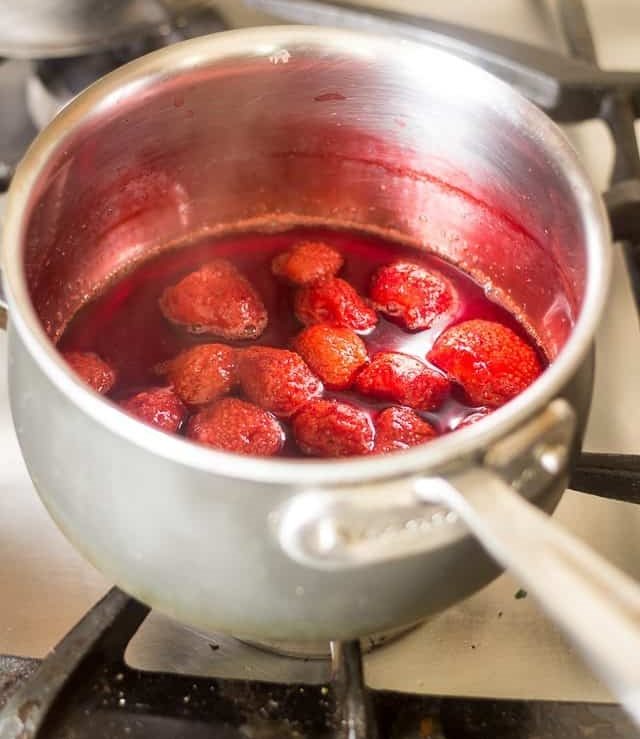
Dried fruits will not cause significant harm to the body of a nursing woman or child. Nevertheless, any mother needs to take note of a number of nuances when consuming dried fruits:
- Try to avoid products brought from abroad, since in this case there is no way to find out exactly how the fruit was dried and processed. Including transportation conditions to the store.
- It is better not to choose varieties that have a strong shine and gloss for dried fruit compote when breastfeeding; they should also be avoided. This is a clear sign that they were treated with special means to extend their shelf life. Adults suffer from this to a lesser extent, but for infants such products will only be harmful.
- Nursing mothers need to pay close attention to the condition of dried fruits and if there is mold, they should not be taken! Fungal spores can cause serious damage to the health of both the woman and her child.
- Everything needs moderation, and this primarily applies to prunes, which have a strong laxative effect. If abused, it can seriously weaken a newborn's stool.
In addition, you must always remember that bright red fruits can provoke allergic reactions. In this connection, it is better not to chase beauty, but to visit the nearest village and buy some nondescript green fruits there (about the size of a small bucket).
What do mothers say?
Ilona, 23 years old, Megion
I can't live without sweets. This became a problem during feeding. Cakes give us diarrhea, chocolate gives us rashes. I had to switch to dates and fresh fruits. The daughter only reacts normally to them.
True, I still want chocolate. But then I stopped dreaming about cakes at night.
Karina, 26 years old, Moscow
From the first day of feeding I have been eating raisins. I cook compotes and add them to cottage cheese with sour cream. Delicious, and no side effects for my son. But he gets a rash when he eats fresh fruit.
In my opinion, fresh fruits during breastfeeding should be eaten very carefully, but you don’t have to worry about dried fruits.
Maria, 30 years old, Chelyabinsk
After childbirth, both this and this are prohibited. I think the only thing that is definitely not allowed is alcohol, canned food and coffee during lactation. And so anything is possible, even sweets. The main thing is to observe moderation, watch your child and choose what is right for your case.
My child had nothing for store-bought sweets. But dried fruits gave me diarrhea, although I didn’t seem to overuse them.
Rules for preparing recipes
Among many women, a logical question usually arises: “When preparing dried fruit compote, how much sugar should be added?” Too much of it leads to increased gas formation in the baby’s body. In this regard, it is better to cook compote without this ingredient. As a last resort, if you still need to add flavor to the drink, then you need to add very little of it so that it becomes a little sweet.
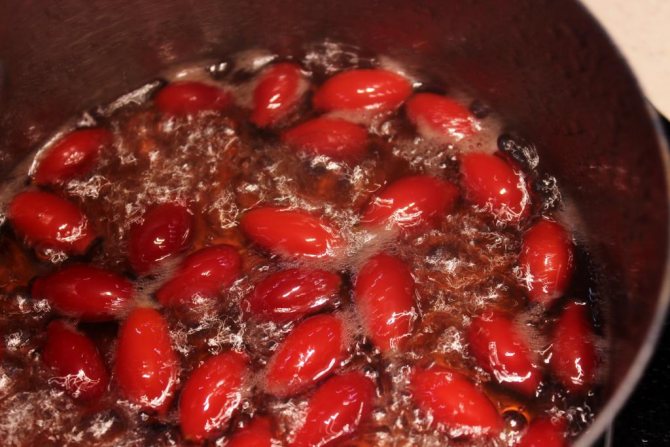
It is better not to buy dried berry compote in the store, but to make it at home, which will be much healthier. Any special mixtures should also not be used, with the exception of sugar and vanilla. All fruits must be thoroughly washed before cooking.
As for citrus fruits, it is not advisable to add them to compote, since they can cause allergies in many children.
How to cook dried fruit compote: step-by-step recipe
To prepare this drink you need to prepare the following ingredients:
- apples;
- plum;
- pears;
- cherry;
- dried apricots
The listed components are taken at the rate of 500 grams of all dried fruits per 2 liters of water. First of all, pears and apples are placed in a container with water, which should be cooked until softened (you can test this by taste or with a knife or fork). After this, you can add the remaining ingredients and continue boiling. To improve the taste, you can add a teaspoon of lemon juice and a pinch of granulated sugar.
Important point! Processing dried fruits with boiling water is due to the fact that this procedure avoids the risk of developing intestinal diseases in infants.
After 30 minutes, the container is removed from the “fire” and cooled to a temperature of 40–50°C. If a nursing mother does not have allergies, then you can add a little cinnamon or vanilla (to taste) to the recipe for compote of dried apples and other fruits.
Can a nursing mother have dried fruit compote?
In the process of natural feeding, it is important that the baby receives beneficial nutrients through mother's milk. Therefore, breastfeeding women should include a variety of fruits in their diet.
It is not necessary to consume the fruits in their pure form, because you can cook a compote from dried fruits - during breastfeeding, it will become a source of vitamins and will allow mother and child to improve bowel movements.
But pediatricians warn that consumption of the drink should be limited.
Dried fruit compote in the diet of a nursing mother
Dried fruit is a potentially dangerous allergen, so it can be included in the menu of a nursing mother 3-4 weeks after birth.
New foods must be introduced into the diet in small quantities, since the imperfect digestive system of a newborn is capable of reacting to unfamiliar substances with stool upset, colic, and excessive gas formation.
If a woman is allergic to any dry berries, you should not drink its infusion. In case of normal fruit tolerance, nursing mothers can prepare a fortified drink from the following berries:
- dried apricots – stabilizes blood pressure and improves digestion;
- raisins – cares for the health of the heart and blood vessels;
- dates – have a calming effect and strengthen the skeletal system;
- rosehip – promotes lactation and improves immunity;
- prunes – strengthens the heart muscle and arteries, improves kidney and gastrointestinal function.
Breastfeeding women should consume compotes made from these dried fruits with time restrictions regarding childbirth.
Drinks made from prunes and raisins can be introduced into the diet 2 weeks after the birth of the baby, from dried apricots and figs - after 1 month, from dates - in the 4th month of the child’s life.
If a liquid dish causes diarrhea, colic or bloating in a newborn, the period of the first dose is increased by 30–60 days.
In general, the aromatic drink is well tolerated by the child’s body, so mothers can drink it to improve the taste and nutritional value of milk, as well as to enhance lactation. Ideally, the broth should be taken 20 minutes before feeding and warm.
Knowledge base for advanced mothers (or what else to read):
How to drink dried fruit compote correctly
To prevent the baby from having problems with the tummy, the mother should adhere to some restrictions when breastfeeding:
- Drink compote from the dryer before noon in a dosage of 200 ml.
- Daily consumption of the drink is unacceptable
- The volume consumed per week should not exceed 3 glasses.
At the initial stage of introducing dried fruit compote into the diet, you can take only the liquid part. Berries from it can be eaten after the mother’s new dish is accepted normally by the child’s digestion.
The first samples of the drink in the amount of 50 ml are carried out between breakfast and lunch and over the next 2 days the baby’s condition is monitored. At the same time, pay attention to the consistency of the stool and the skin. It is possible that a rash will appear on the body.
Cooking recipes
It is not advisable to buy a drink made from dried fruits in a store while breastfeeding. Compote should be cooked at home from whole, well-washed dried fruit.
The recipe should not contain any special mixtures; only small amounts of vanilla and sugar are allowed. Compote is often called uzvar, but this is a different drink.
The first option is prepared by bringing the berries to a boil and then infusing them. The recipe for dried fruit compote involves cooking until fully cooked.
Let's look at how mothers can make a healthy drink while breastfeeding. Its ingredients are:
- apples;
- plums;
- pears;
- cherries;
- dried apricots.
All components are taken little by little at the rate of 0.5 kg of drying to 2 liters of water. For taste add 1 tsp. lemon juice and a pinch of sugar. The recipe for making dried fruit compote for nursing mothers requires thorough washing of the fruits with warm running water.
Place clean apples and pears in a container of water and cook until softened (test by taste or using a knife or fork). Then add the remaining products, sprinkle in sugar and continue boiling. After half an hour, the liquid dish is removed from the oven and cooled to 40–50°C.
And here is another recipe for dried fruit compote - simpler and requiring only one type of fruit:
- Dried berries are washed and kept in hot water for 30 minutes.
- The raw materials are placed in boiling water at the rate of 100 g per half liter.
- The oven is switched to moderate temperature and the drink is brewed for half an hour.
- After adding sugar, boil the mixture for another 5 minutes.
Compote from dried apricots during breastfeeding is prepared using the following recipe. 250 g.
dried apricots are kept for a quarter of an hour in hot water, and then washed and poured with cold sweetened water (concentration of 2 liters to 1/4 cup of sugar).
As soon as the drink boils, set the stove to low heat and boil the composition for 7 minutes. The resulting liquid can be taken by the mother after infusing for 60 minutes under the lid.
As you can see, the process of preparing a drink is not limited to one option. A variety of drying ingredients combined with sugar, lemon juice and vanilla will give ordinary water a unique taste and make it healthy for mother and child. Eating dried fruit compote is a simple prevention of constipation and vitamin deficiency.
Source: https://krohapuzz.ru/grudnoe-vskarmlivanie/kompot-iz-sukhofruktov-pri-grudnom-vskarmlivanii.html
Dried apricot recipe
A similar drink is prepared as follows:
- 200 or 300 grams of dry raw materials should be poured with hot water and allowed to brew for 15 minutes.
- Then the softened dried fruits should be washed and filled with cold water, where you can add a little sugar to sweeten it (a quarter cup).
- The liquid is brought to a boil, after which it is boiled for another 7 minutes, reducing the “fire” to minimum.
- The finished drink should be infused for 60 minutes.
Dried apricot can be consumed by nursing women in its pure form. However, its amount should not exceed more than 100 grams per day, since this product is difficult for the infant’s digestive system.
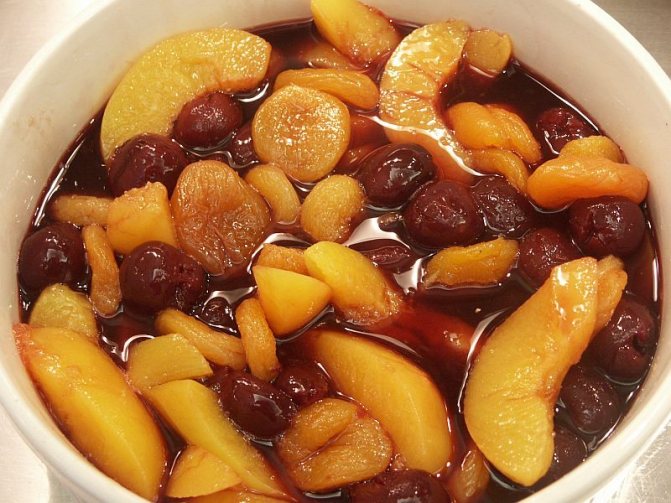
Compote of dried apricots is another matter, but you shouldn’t overuse it either.
Dried fruits during breastfeeding, can a nursing mother have compote?
16.01.2018
The myths surrounding the process of giving birth and carrying a child to term are sometimes so contradictory that the young mother does not know what to choose. When feeding the baby with her milk, she tries to eat only the essentials.
But the environment often condemns her choice, because this or that product is strictly prohibited. Dried fruits during breastfeeding can replenish the body depleted by pregnancy with vitamins.
Read about what dried fruits a nursing mother can eat in this article.
Types of dried fruits and their benefits
Most often in Russia, compote is made from dried apples, dried apricots, raisins and prunes. Some people add dates and rose hips. Each fruit has its own special properties that will support a weakened body.
- Thus, dates are considered a source of calcium and essential amino acids, which is necessary for the development of the baby’s musculoskeletal system. The magnesium in the composition will ensure healthy sleep for mother and child and the production of serotonin - the hormone of happiness. Dates are necessary during periods of illness, a weakened body and large blood loss.
- Raisins are responsible for the supply of potassium, which is essential for a healthy heart and blood vessels. Nicotinic acid and phosphorus, lactose are not a complete list of benefits of dried grapes. Affects the nervous system of mother and baby, improving sleep, fighting fatigue and strengthening the cardiovascular system. But this is an insidious fruit, as it can provoke colic and indigestion.
- Dried apricots provide fiber, ascorbic acid, retinol and normal blood pressure, as well as healthy kidneys. Normalizes digestion, improves resistance to infections. It is easier to digest not in its pure form, but in compotes, desserts or cereals.
- Prunes improve mother’s digestion, which is important after physiological changes in the body, and help prevent iron deficiency anemia. Possible effect on infant digestion. If there are changes in this matter, postpone the introduction to the diet to a later date.
- Eating apples during this period will also provide the body with iron. The most common choice of new mothers due to the fact that apples and pears almost never cause adverse reactions in children. Preparing them in a dryer from your country supplies will also not cause any particular difficulties, which means you will be confident in the quality of the product you are using. Recommended for women who have had a caesarean section.
- Rosehip, together with dates, helps increase lactation, as it affects the production of the hormone oxytocin. And the amount of vitamin C is much greater than in citrus fruits. It improves the situation with the mother’s kidneys; you can cook compote only from this berry and drink it an hour before feeding.
When to introduce dried fruits into a nursing mother's diet?
The introduction of any products into a woman’s diet can begin after the baby reaches the age of two weeks. The last ones recommended to start eating dried apricots and dates are after four months. If allergy symptoms occur, remove the new product and try again in a couple of weeks.
Some fruits can provoke colic in a baby, so monitoring his condition is necessary. If the changes are not for the better, return to the diet with which the child and you were comfortable.
Dried fruits compote
To cook compote, you need to purchase dried fruits. You can do this in two ways: dry it yourself and buy ready-made ones. In the second case, pay attention to the quality of the product: there should be no mold or dyes. It will be easier to do this not in a ready-made mixture, but in individual varieties.
How to cook compote
Before use, dried fruits must be washed with running water. You can add 1 tablespoon of sugar, a little cinnamon or vanillin to a saucepan containing 1-2 liters of water if the baby has no food reactions.
Dried fruits are added to boiling water, brought to a boil again, after which you should turn off the stove, cover the pan with a lid and let it brew for half an hour.
The benefits of dried apples
Of all the drinks, the recipe for dried apple compote is relevant for nursing mothers already in the first month of a child’s life. Apples are known for their hypoallergenic qualities and in very rare cases can cause allergies in children, who are most prone to food allergies.
And since, as previously noted, red fruits cause similar reactions, green varieties should be used. There are only three ingredients here:
- dried apples themselves - 500 g;
- sugar – 1 tbsp. l.;
- water – 2 l.
The dried fruit compote ingredients are washed well and placed in a container with hot water for half an hour. Then they are transferred to boiling water and cooked for 30 minutes over moderate heat. Then you can add sugar and cook for another 5 minutes.
Store drinks
Many nursing mothers believe that compotes, which can be purchased in stores, are as healthy as freshly brewed ones. However, this opinion is extremely erroneous. During mass production, flavor enhancers, flavors, dyes and preservatives are added to drinks. All these substances can cause severe allergies in a baby.
The same applies to canned homemade compotes from apples and other fruits and berries. During storage, all useful substances disappear from them, and only sugar remains, which is present there in large quantities as a preservative.
You can drink homemade compotes while breastfeeding only freshly cooked, with the addition of a small amount of sugar, without the addition of citric acid and other flavor enhancers.
The brewing time for the drink should not exceed 20 minutes, otherwise the drink will lose its beneficial properties.
In winter, compote can be made from both dried and frozen fruits. Avoid adding citrus fruits to compote; this type of fruit causes allergies in many children.
Read also:
Pineapple for mom while breastfeeding and how the baby will react
For many breastfeeding mothers, the period of breastfeeding is very difficult. And often it is the refusal of habitual food that is the most difficult test. However, you need to remember that now you are not just a woman, you are a mother who simply must take care of her baby. Strict prohibitions are imposed only during the first months of feeding; later, you can gradually return to your normal feeding schedule. The only condition is clear monitoring of the child’s condition after introducing each new food product.




